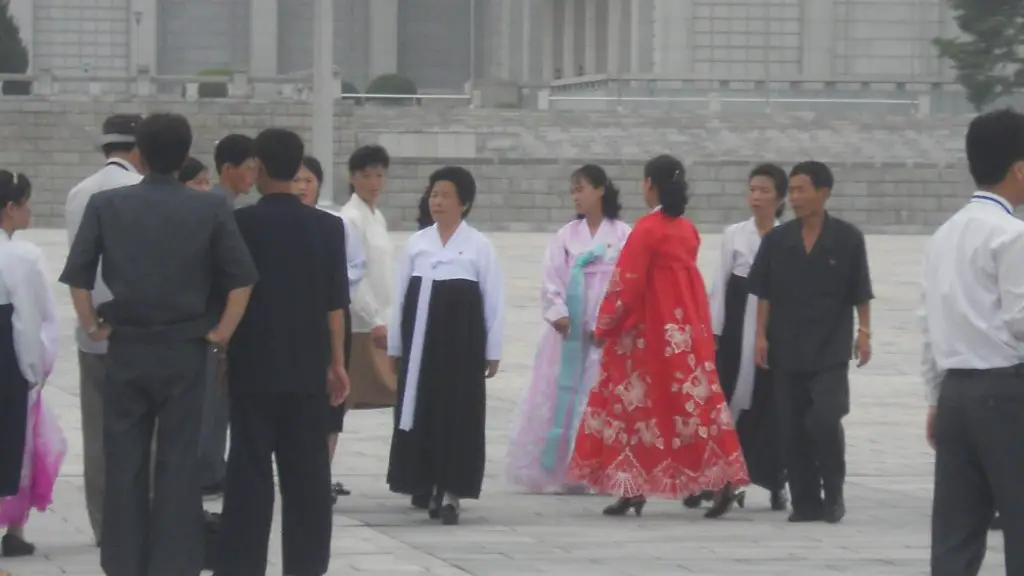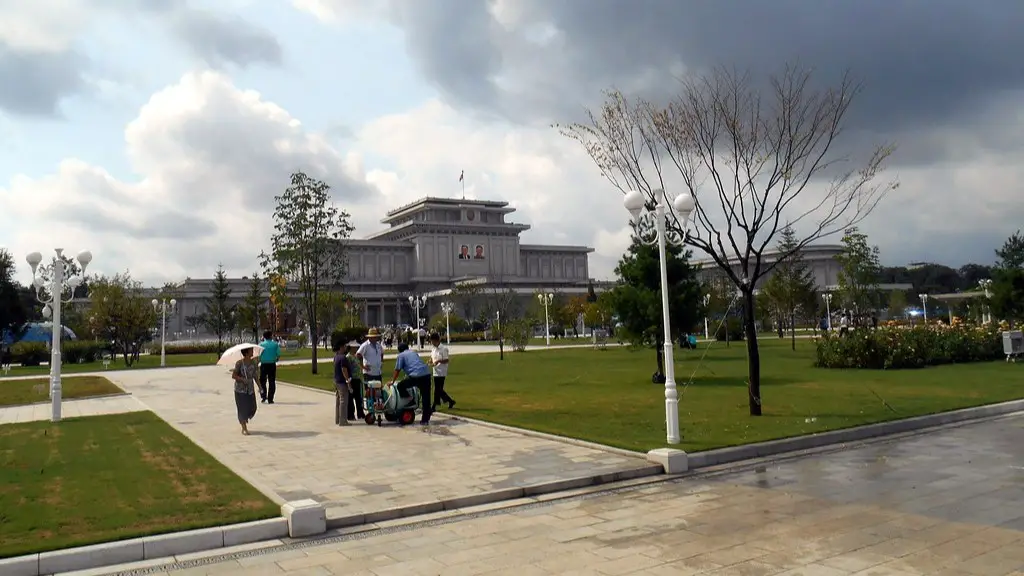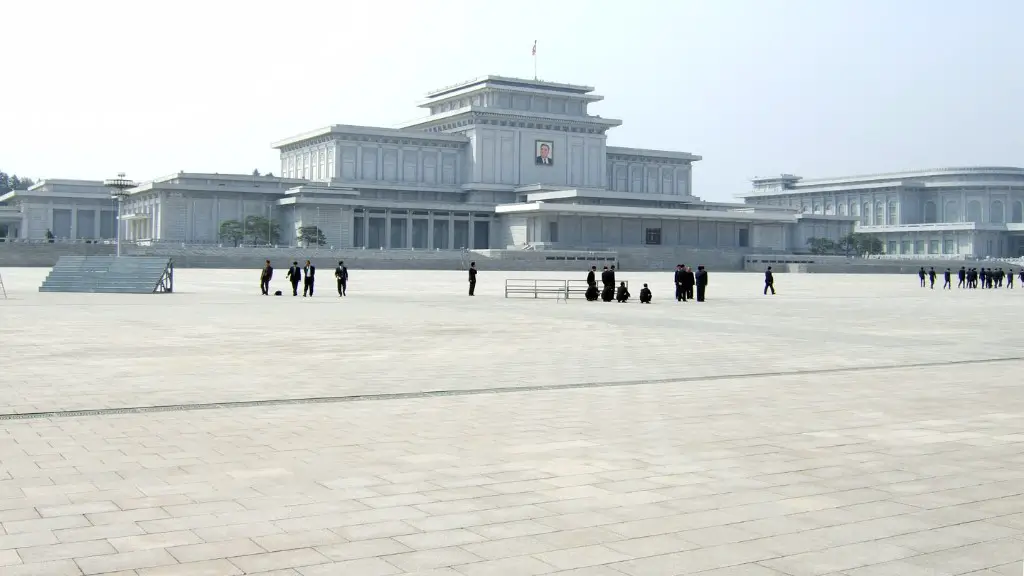The hermit state of North Korea has been a menace to the rest of the world for decades. For many years, North Korea has presented a unique problem for the global community, and the question of whether or not North Korea is serious in its threats has caused much debate. North Korea’s nuclear program, its repeated missile launches and its increasing belligerence have all served to heighten tensions between it and the rest of the world. But is North Korea truly serious in its threats, or is it simply posturing? An examination of the facts reveals a complicated and difficult issue.
At the core of the issue is North Korea’s nuclear program. North Korea has been developing and testing nuclear weapons for years, and its nuclear capabilities have become increasingly sophisticated. In 2017, North Korea conducted its sixth and most powerful nuclear test, releasing an estimated 120-270 kilotons of energy, making it the country’s most powerful test to date. North Korea’s nuclear capabilities have led some to question if they are indeed serious in their threats.
North Korea has also engaged in provocative missile launches throughout recent history. In 2017 alone, North Korea conducted 18 successful ballistic missile launches, indicating that the country has considerable technical capabilities and is willing to use them. Such aggressive behavior has further heightened tensions with the rest of the world, and some experts believe that these launches are a direct result of North Korea’s growing nuclear capabilities.
The country’s aggressive posturing has gained the attention of the world’s superpowers. The United States and its allies have threatened additional economic sanctions against North Korea if it does not cease its provocative behavior. In a rare move, North Korea has even withdrawn from the Treaty on the Non-Proliferation of Nuclear Weapons, a treaty it had signed in 1985. This decision demonstrates North Korea’s unwillingness to yield to international pressure and has caused alarm in the international community.
The question of whether North Korea is serious in its threats is a difficult one to answer. North Korea has demonstrated its willingness to use aggressive tactics and its growing nuclear capabilities are cause for concern. On the other hand, some experts believe that North Korea is simply posturing and is not as threatening as it appears. Only time will tell whether North Korea’s actions will lead to more serious tensions, or if the rhetoric is simply bluster.
Confrontation
The United States, South Korea, and Japan have all been the victims of North Korea’s aggression and are now looking for ways to contain the threat that the regime poses. The United States has responded to North Korea’s threats by sending aircraft carrier groups to the Korean Peninsula and deploying additional troops to the region. In addition, the United Nations Security Council has imposed several rounds of economic sanctions on North Korea, in an effort to curb its nuclear ambitions.
Moreover, the United States and numerous other nations have proposed that North Korea enter into negotiations in order to resolve the situation peacefully. However, North Korea has so far refused to enter into such talks, despite the calls from the international community. Its refusal has many experts questioning whether North Korea is truly serious in its threats or is simply posturing.
A possible solution to the current crisis may be to increase economic and political pressure on North Korea in order to induce it to back down. For this to work, however, it is essential that all nations involved remain united in their approach and are willing to impose further sanctions if necessary. Additionally, diplomacy and talks between the nations must continue in order to ensure that further provocation is avoided.
Whether North Korea is serious in its threats is impossible to know. The country’s increasing nuclear capabilities and aggressive posturing have led many to believe that it is indeed serious. But, only time will tell if North Korea’s threats will turn into action, or if the rhetoric is simply posturing.
Public opinion
Public opinion on the North Korean crisis is divided. Many experts view the situation as a potential threat to global security and the threat must be taken seriously. Others, however, have stated that North Korea is simply trying to gain attention and its threats should be viewed as bluster.
In the United States, opinion is particularly split. Many see North Korea as a danger to global peace and security, while others, such as President Donald Trump, believe that the country presents an opportunity to normalize relations. In February of 2018, United States and North Korean representatives met in South Korea to discuss the possibility of future peace talks, showing that the two nations are at least willing to enter into dialogue.
Regardless of public opinion, the international community must remain vigilant in the face of the North Korean threat. Now more than ever, all countries must remain united in their stance against North Korea and must be willing to enter into negotiations if necessary.
The North Korean crisis is a serious problem and the international community must take every precaution to ensure that tensions do not continue to escalate. Only time will tell if North Korea is truly serious in its threats or if it is simply posturing, but it is clear that the crisis must be taken seriously and responded to with caution.
History
The history of the North Korean crisis stretches back decades. Since the end of the Korean War in 1953, the two Koreas have remained divided and tensions have been high. North Korea has developed an isolated economy, leading many of its citizens to suffer from severe poverty, and international sanctions have only made the situation worse.
In recent years, North Korea’s nuclear program has been a major point of contention. In 2006, North Korea conducted its first nuclear test and has since conducted five additional tests. North Korea’s missile launches, along with its increasing nuclear capabilities have only served to heighten tensions in the region.
In an effort to contain the threat, the United States and its allies have imposed economic sanctions and have increased military presence in the region. The United Nations, too, has passed several resolutions placing economic restrictions on North Korea. Additionally, the United States has offered to enter into negotiations with North Korea in order to peacefully resolve the situation.
North Korea is a complex and difficult issue, and there is no easy solution. The international community must remain vigilant in the face of the North Korean threat, and must be willing to take whatever action is necessary in order to maintain peace and security in the region.
Politics
Politics play a major role in the North Korean crisis. The United States has long been a vocal opponent of North Korea’s nuclear program and has proposed several different solutions to the crisis. In 2017, for example, the United States proposed that North Korea enter into negotiations in order to peacefully resolve the situation. However, North Korea refused to enter into such talks, leaving the United States and its allies frustrated.
It is also important to note that North Korea’s neighbor, China, also has a role to play in the crisis. China has traditionally been a strong ally of North Korea and is the country’s largest trading partner. In an effort to pressure North Korea to de-escalate the situation, China has implemented several economic sanctions against the regime. China’s support has been crucial in containing the threat, and its efforts should not be overlooked.
In addition to China, the United Nations has also become involved in attempts to contain the North Korean threat. In 2016, the United Nations Security Council passed its toughest sanctions yet against North Korea, in an effort to limit its nuclear ambitions. The sanctions have had some success, but North Korea’s nuclear capabilities continue to grow. The United Nations must continue its efforts to contain the threat and must be willing to impose even stricter sanctions if necessary.
Politics are an integral part of the North Korean crisis and leaders of all nations must remain involved in order to ensure peace and stability in the region. Without international cooperation, the threat of North Korea cannot be contained. All nations must continue to take a united stance and must be willing to impose further sanctions if necessary.
International relations
International relations have been heavily impacted by the North Korean crisis. The crisis has heightened tensions between North Korea and its neighbors, and between North Korea and the United States. In 2017, tensions rose to new heights after the United States and North Korea engaged in a war of words, with both sides exchanging verbal threats.
The crisis has also strained relations between the United States and its allies. The United States and its allies have been united in their stance against North Korea and have pursued a policy of economic sanctions and diplomatic pressure. This stance has been met with resistance from some of the United States’ allies, such as China, who have argued that North Korea’s nuclear ambitions should be addressed through dialogue and negotiations.
The North Korean crisis has also had an impact on global markets. North Korea’s aggressive behavior has caused markets around the world to jitter, as investors worry about the potential impacts of a potential conflict. Additionally, stringent economic sanctions have caused financial hardship for North Korea’s citizens and have exacerbated poverty in the nation.
The North Korean crisis has affected international relations for years and the situation shows no signs of abating. It is clear that the international community must take a united stance against North Korea and must be willing to enter into negotiations if necessary. Only by working together can the international community hope to find a peaceful resolution to the crisis.





